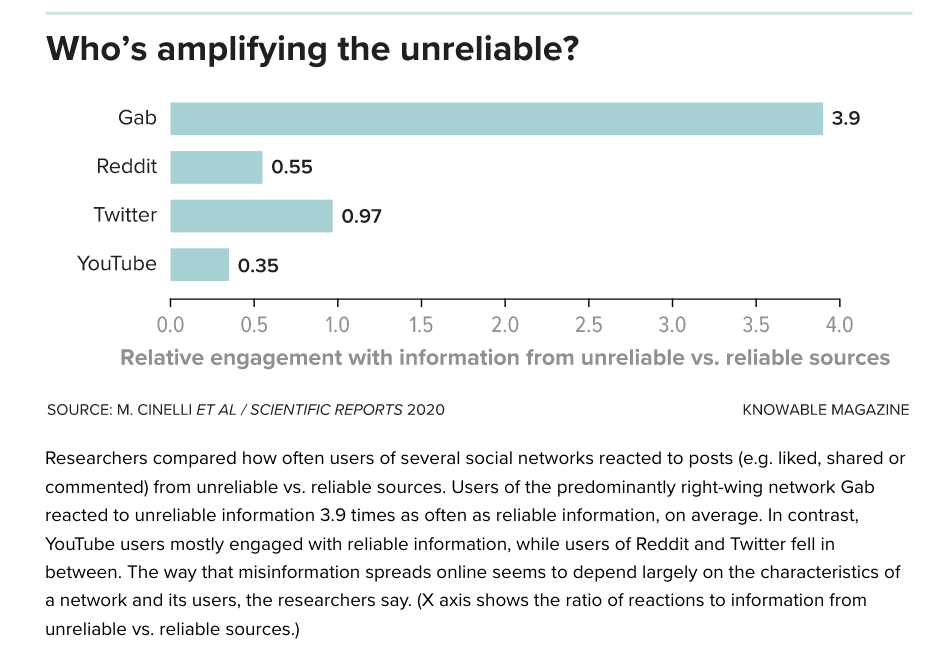Report: “How Online Misinformation Spreads”
From Knowable Magazine:
…research suggests that malicious websites, bots and trolls make up a relatively small portion of the misinformation ecosystem. Instead, most misinformation emerges from regular people, and the biggest purveyors and amplifiers of misinformation are a handful of human super-spreaders. For example, a study of Twitter during the 2016 election found that in a sample of more than 16,000 users, 6 percent of those who shared political news also shared misinformation. But the vast majority — 80 percent — of the misinformation came from just 0.1 percent of users. Misinformation is amplified even more when those super-spreaders, such as media personalities and politicians like Donald Trump (until his banning by Twitter and other sites), have access to millions of people on social and traditional media.
Thanks to such super-spreaders, misinformation spreads in a way that resembles an epidemic. In a recent study, researchers analyzed the rise in the number of people engaging with Covid-19-related topics on Twitter, Reddit, YouTube, Instagram and a right-leaning network called Gab. Fitting epidemiological models to the data, they calculated R-values which, in epidemiology, represent the average number of people a sick person would infect. In this case, the R-values describe the contagiousness of Covid-19-related topics in social media platforms — and though the R-value differed depending on the platform, it was always greater than one, indicating exponential growth and, possibly, an infodemic.
Differences in how information spreads depend on features of the particular platform and its users, not on the reliability of the information itself, says Walter Quattrociocchi, a data scientist at the University of Rome. He and his colleagues analyzed posts and reactions — such as likes and comments — about content from both reliable and unreliable websites, the latter being those that show extreme bias and promote conspiracies, as determined by independent fact-checking organizations. The number of posts and reactions regarding both types of content grew at the same rate, they found.
Learn More, Read the Complete Article (approx. 2200 words)
Filed under: Associations and Organizations, Data Files, News, Patrons and Users, Video Recordings
About Gary Price
Gary Price (gprice@gmail.com) is a librarian, writer, consultant, and frequent conference speaker based in the Washington D.C. metro area. He earned his MLIS degree from Wayne State University in Detroit. Price has won several awards including the SLA Innovations in Technology Award and Alumnus of the Year from the Wayne St. University Library and Information Science Program. From 2006-2009 he was Director of Online Information Services at Ask.com.



